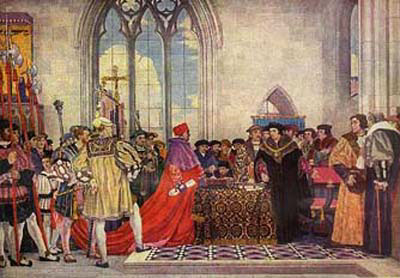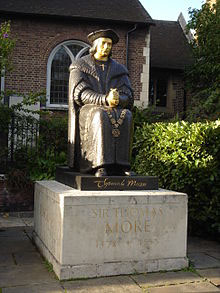40 Days...40 Ways to Mercy-3rd Week of Lent Admonish the Sinner
But I tell you, if you do not repent, you will all perish as they did!” Luke 13:5

Lent is a time of reconciliation, a time to take an honest look at our relationship with God and with others. During the Lenten season in particular, we take the time to examine ourselves honestly and deeply to see if we have caused any harm to anyone, and if we have, we work to make amends and seek forgiveness. However, we know that there are still times that a relationship is tested because of a failure to follow the right path or a refusal to do the right thing.
There may come a time when we realize that the situation has gone beyond the point of simply overlooking a fault. Acceptance and tolerance is no longer a choice when someone is on the brink of spiritual or physical self-harm, and out of love a correction must be made. This isn't judgement. It is fraternal correction. It is admonishing the sinner.
Admonishing someone who is in danger of a serious and deadly sin is not the same as being judgmental and is never hurtful, because it springs out of a sense of responsibility and love for the well-being of another person.

Thomas More was called "A Man for All Seasons."
He was a brilliant scholar, a monk, a writer, an attorney, a husband and a father and the Chancellor of England.
At one time he believed that he was called to the priesthood and entered a monastery for a short while, but decided that it wasn't the life he was called to and returned to study law. However, he never lost his zeal for the prayer and austerity of the monastic life.
Among the many published writings are a book entitled "Utopia," which was published in his lifetime, and "A History of Richard III," published after his death.
Thomas studied law and passed the bar and soon married. He and his wife had three daughters and a son before he was widowed. He insisted that his daughters receive the same excellent classical education as his son, which was rare at this time. His daughters were as brilliant as their father.
He was a devoted and loving family man. After his wife Jane's death, he married a widow and raised her daughter as his own.
He began a political career by being elected to Parliament in 1504. After a diplomatic mission accompanying Archbishop Cardinal Wolsey Thomas was knighted.
His brilliant mind soon came to the attention of King Henry VIII. Henry appointed Thomas as Chancellor of England and served the king as a secretary and advisor. His influence and power began to grow.
The King and his Chancellor did not always see eye to eye and there was tension when Henry decided to go against the Pope and the laws of the Church.
Protestantism had begun to spread throughout Europe. Henry was aware of the Reformation and fought it through his writings. He was determined not to allow it to spread to England and actively worked to keep the ideas from spreading into England.
Henry VIII was married to Catherine of Aragon. Catherine did not bear him any sons as heirs to the throne, so Henry decided to get the marriage annuled and petitioned the pope for permission.
When Pope Clement VII would not grant the annulment Henry decided to turn away from the Church and divorce Catherine to marry Anne Boleyn.
Thomas could not in conscience agree with the King, but would not disagree publicly, so he resigned his post as chancellor.
The King, in his anger with the pope broke with the Church, declared himself the supreme head of the new Church of England.
Thomas spent the rest of his life writing in defense of the Church.
Thomas refused to give allegiance to the King as the head of the Church. Holding fast to the teaching of papal supremacy, More would not take the oath. John Fisher, Bishop of Rochester, refused the oath along with More. They were both arrested and convicted of treason.
He was sent to the Tower of London to await his execution and was beheaded on July 6, 1535.
On the scaffold Thomas declared that he was going to die "the king's good servant, but God's first."
In 1935, Thomas More was canonized a saint of God.
Saint John Paul II named him patron of political leaders. The supreme diplomat and counselor, he did not compromise his own moral values in order to please the king, knowing that true allegiance to authority is not blind acceptance of everything that authority wants.

Thomas More is the patron of Attorneys, Civil servants, Court clerks, Lawyers, Politicians and Public servants.
Quotes of Saint Thomas More
If honor were profitable, everybody would be honorable
"A FRIENDSHIP LIKE LOVE IS WARM; A LOVE LIKE FRIEND SHIP IS STEADY."
TO BE EDUCATED, A PERSON DOESN'T HAVE TO KNOW MUCH OR BE INFORMED, BUT HE OR SHE DOES HAVE TO HAVE BEEN EXPOSED VULNERABLY TO THE TRANSFORMATIVE EVENTS OF AN ENGAGED HUMAN LIFE.
HERE BRING YOUR WOUNDED HEARTS, HERE TELL YOUR ANGUISH; EARTH HAS NO SORROW THAT HEAVEN CANNOT HEAL.

Saint Thomas is known as someone who was determined and principled, but possessing a sharp wit and inner joy. Saint Thomas More's Prayer for Good Humor is rumored to be said by Pope Francis.
Grant me, O Lord, good digestion, and also something to digest. Grant me a healthy body, and the necessary good humor to maintain it. Grant me a simple soul that knows to treasure all that is good and that doesn’t frighten easily at the sight of evil, but rather finds the means to put things back in their place. Give me a soul that knows not boredom, grumblings, sighs and laments, nor excess of stress, because of that obstructing thing called “I.” Grant me, O Lord, a sense of good humor. Allow me the grace to be able to take a joke to discover in life a bit of joy, and to be able to share it with others.